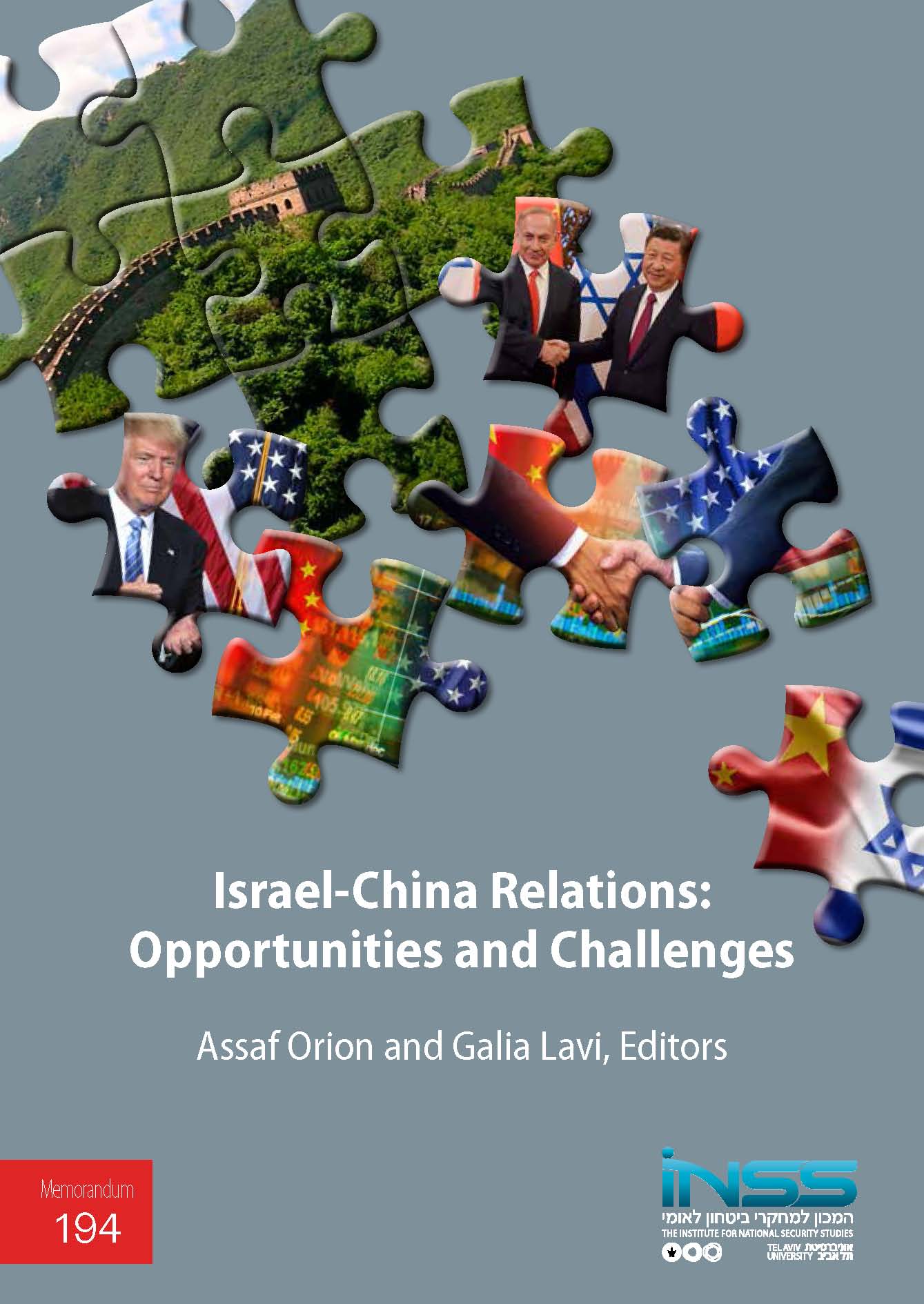Publications
Memorandum No. 194, INSS, August 2019

With its dramatic growth over the last three decades, China has catapulted to become a global economic superpower, second only to the United States. Concurrently, it has established itself as a political power, and it is likewise seeking to expand in the military-security realms. These decades also saw the development of China’s relations with Israel, which began in 1992 and grew particularly rapidly over the last decade, mostly in economic terms. China already possesses significant markets, capital surpluses, and excess production, some of which it turns abroad. At this point, it seeks to ensure its continued growth and stability by developing a domestic market and domestic services, improving the quality of life and the environment, and seeking a global leadership role in innovation and technologies. China’s needs in areas of technology, innovation, food, water, medicine, and the environment, match Israel’s relative advantages in these fields, and indeed, both sides have identified the potential for a “win-win” situation, to use famous Chinese diplomatic language. However, the symmetry of the expression is misleading, because clearly this is not a partnership between equals, but rather relations between an enormous global powerhouse and a small nation, even if extremely innovative and powerful for its size, at the western edge of western Asia. Managing these complex relations to promote Israel’s interests is a main challenge of Israel’s China policy. The policy issues that the Israeli government generally faces with regard to every other nation are compounded by challenges stemming from China’s uniqueness.


